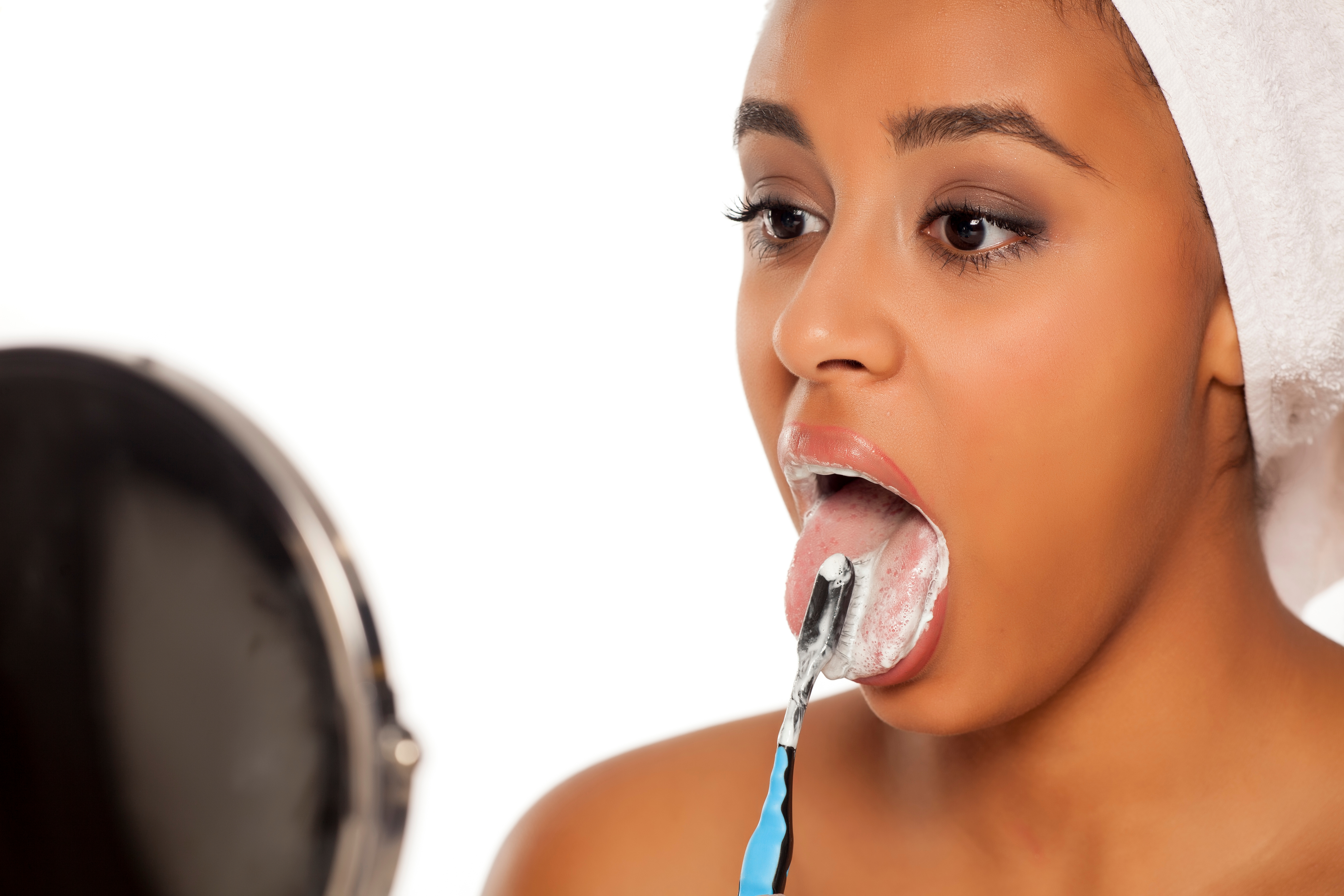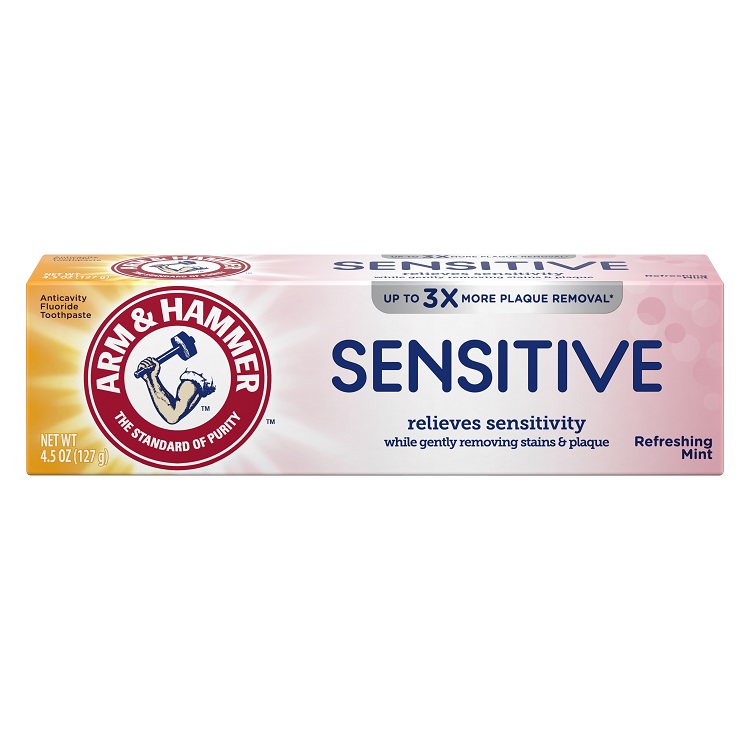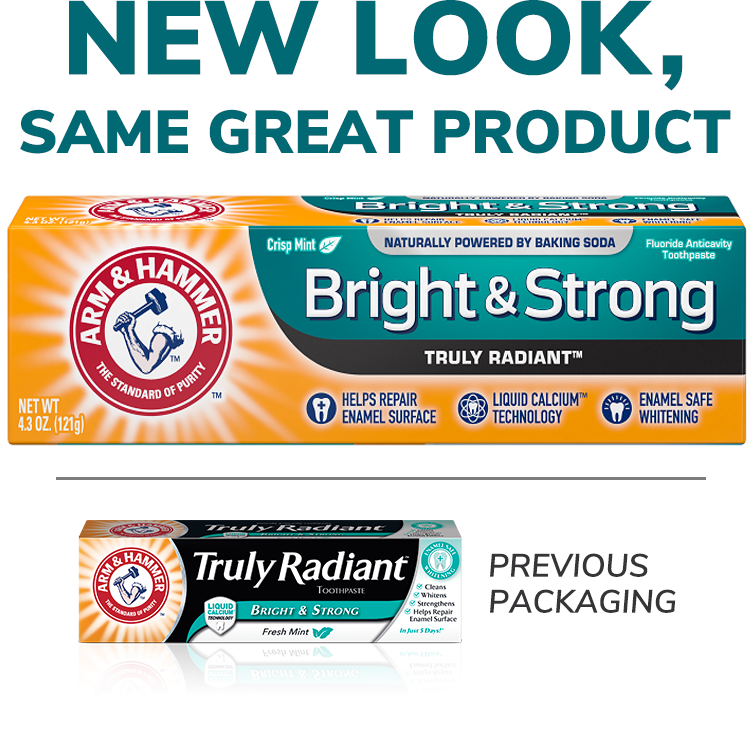How To Prevent Bad Breath

Waking up in the morning and thinking “what’s that smell?” only to realize your breath stinks isn’t any fun. You might also be someone who discovers they get malodorous breath after you eat or drink certain foods—you might struggle to conquer your bad breath even after you brush your teeth. Don’t panic, you’re not alone.
Millions of people battle bad breath every day. We’re going to discuss some of the reasons you might have bad breath, remedies to get rid of bad breath, and toothpaste formulas that may help you in the battle – and the war – against bad breath.
What is Halitosis?
Halitosis is the medical terminology for bad breath. According to Merriam-Webster, the specific definition includes having “fetid” breath—with fetid meaning a heavy and offensive smell.
Oftentimes, people think in the context of chronic halitosis, or bad breath that does not go away over an extended period. Chronic halitosis may be an indication of an underlying oral health or medical condition.
It's important to know that halitosis is fairly common. Recent studies have shown that halitosis impacts anywhere between 25-31% of people worldwide. Still, regardless of how common bad breath is, you would probably prefer to stop the stinky smells coming from your mouth as soon as possible. That’s why it’s important to know some of the root causes of halitosis.
What Causes Halitosis?
Sulfur-producing bacteria in your tongue and throat is the primary cause for halitosis and the stink you might smell when you breathe. The bacteria count in your mouth can vary depending on your genetic makeup, diet, and lifestyle habits, among other factors.
What Causes Bad Breath?
Plenty of factors cause bad breath. We talked about the bacterial element, which also includes naturally occurring bacteria in your mouth. But bad breath can also stem from a lack of saliva production and even your diet. Let’s take a closer look at some of the causes of halitosis:
- Bacteria: Did you know you have hundreds of types of bacteria that always live in your mouth? These bacteria help break down the food you eat, and the byproducts can create an odor in your mouth that could result in stinky breath.
- Dry mouth: Saliva helps clean your mouth and keep your breath smelling fresh. So, if you are someone who has trouble producing saliva or you eat lots of food and drink that reduces saliva production, this lack of saliva can lead to a bad taste in your mouth and breath problems.
- Food: The types of food you eat can cause bad breath. You probably already know that coffee and garlic are some of the worst offenders. Other foods that can lead to foul fumes from your mouth include canned tuna or other canned fish, onions, chilis, curries, dairy (especially cheese), and horseradish. Excess intake of sugary and salty foods or drinks can contribute to dry mouth, which may impact saliva production and cause bad breath.
- Smoking and tobacco use: Smoking not only stains your teeth, but it also damages your gums, and gum disease can lead to bad breath (more on this in a second). Smokeless tobacco can also contribute to bad breath in addition to worn-down enamel, teeth staining, and gum recession. Alas, smokers and tobacco users should be aware that they may be more exposed to bad breath.
- Gum disease: If you have chronic bad breath and a constant bad taste in your mouth, it’s time to see your dentist. You may have gingivitis or early gum disease, that can be created by a buildup of plaque in your mouth and cause bad breath. Gum disease can start slowly and then be a major problem; regular dental checkups are a good strategy.
- Digestive issues: If you have Irritable Bowel Syndrome, Crohn’s Disease, Celiac Disease, or acid reflux, you can get bad breath as gases from your digestive system are released through your mouth. Speak with your doctor about ways to control your diet and other strategies related to stopping bad breath.
- Underlying medical conditions: If you’ve ruled out all the other causes and you are still plagued by bad breath, see your doctor. Several underlying medical conditions can cause symptoms of bad breath.
What Causes Morning Breath?
Morning breath is typically caused by dry mouth, often because saliva production “diminishes drastically” when we sleep. This can lead to bad or slightly malodorous “morning” breath. Additionally, the dry mouth may be exacerbated by food or drink you consumed the night before, particularly if you forgot to brush your teeth.
You should also be aware that your morning routines may contribute to morning breath. For example, while saliva production rapidly increases during the morning hours, things like drinking coffee can partially limit that production. The same goes for tobacco use—so that late-morning cigarette might cause extended morning breath.

How to Help Get Rid of Bad Breath
While cutting back on things like coffee and onion or garlic might help you stop bad breath periodically, those dietary changes are not the most optimal ways to prevent chronic halitosis. Plus, you shouldn’t necessarily have to think about reworking your diet because of bad breath. The good news is that you shouldn’t have to do that.
Taking care of your teeth and gums is a pivotal element in getting rid of and preventing bad breath. However, there are several other bad breath remedies to help you conquer halitosis. Here’s a comprehensive list of things you can do to get rid of bad breath so you can revel in clean, white teeth and avoid stinky smells:
- Brush regularly: If you have bad breath, brush at least two times per day, morning and evening – preferably after every meal. The American Dental Association (ADA) recommends waiting 30 minutes to brush after eating, particularly if you’ve consumed acidic foods. Offering a brief waiting period allows time for saliva production to help wash away lingering food particles and help return your mouth’s pH to a normal level. Remember to use a soft-bristled toothbrush and take caution not to brush too hard!
- Brush your tongue: Did you know that your mouth houses about 700 species of microbes, and that many of those species reside on your tongue? While some of these are healthy, other bacteria can contribute to tooth decay and gum disease—both of which cause halitosis. You also have food debris and dead cells on your tongue that can contribute to bad breath. Thus, it’s important to brush your tongue to help remove some of these microbes to help keep your mouth clean and prevent or get rid of bad breath.
- Don’t forget to floss: If brushing is the only part of your oral routine, you’re doing it wrong. Flossing daily is an essential part of having healthy teeth and gums because it helps to remove food particles and plaque between the teeth and on the gumline. It addresses the areas your toothbrush can’t reach. In fact, flossing does a better job of removing bad breath-causing bacteria than just brushing alone. Flossing can also help prevent eroded tooth enamel and the formation of tartar. Need we say more?
- Stay hydrated: Drinking water not only helps stimulate saliva production and limit dry mouth. It can also help wash away leftover food particles and other residue lingering in your mouth—which bacteria often latch onto to cause bad breath. If you’re a mouth breather when you sleep or someone who struggles with morning breath, you should take care to drink water before bed and possibly keep a glass at your bedside table in case you wake up thirsty. You might also consider consuming crunchy foods like celery or carrots to help revitalize saliva production or chew sugar-free gum if you’re in between brushing sessions. Staying hydrated is always important for your general health and wellbeing, but it’s also a way to help stop bad breath!
- Consume more probiotics: Many people tend to think of probiotic foods and supplements as helping to aid digestion. But did you know that some probiotics might also play a role in stopping bad breath? Studies have suggested that probiotics can help relieve halitosis in the short-term, so you might consider supplementing your usual diet with some yogurt or kombucha! You can also get probiotics from sour cream, cottage cheese, and pickles. For something light, miso soup is another food containing probiotics.
- An apple a day…: Apples possess some nice cleansing properties. The fibrous texture of the skin helps to stimulate your gums by increasing saliva production while also aiding the mouth in bacterial washout. Eating an apple will not remove plaque, but you can still help to clean bacteria from your mouth, which in turn may help with halitosis.
- Visit your dentist regularly: A good oral care routine includes regular dental checkups. Your dentist will check for signs of tooth decay, cavities, receding gums, and gum disease. All of these oral issues can create bad breath. And, if going to the dentist gives you anxiety, make sure to speak with your dentist about strategies you might try to help reduce that anxiety so your teeth and gums can get the care they need.
Why Does My Mouth Smell Bad Even After Brushing?
Multiple factors can lead to your breath still smelling bad after you brush your teeth, including poor oral hygiene and personal illness.
For example, if you forget to floss, plaque buildup may cause halitosis or foul-smelling breath. Not brushing your tongue may allow certain bacteria to flourish.
Bad breath after brushing could also be a sign of early gum disease (gingivitis), cavities, or another oral condition. Consult with your dentist if you experience extended bad breath even after brushing your teeth.
Does Baking Soda Help Bad Breath?
Baking soda toothpastes help to stop and prevent bad breath by balancing the pH in your mouth to work against plaque acids. They also help remove plaque and are less abrasive than other toothpastes**.
All ARM & HAMMER™ toothpastes are formulated with baking soda and remove 3X more plaque in hard-to-reach areas compared to a leading toothpaste. Plus, there are different formulas to choose from, including:
- ARM & HAMMER™ Peroxicare™ helps improve gum health by targeting plaque, tartar, and set-in stains.
- ARM & HAMMER™ Sensitive Toothpaste has 5 percent potassium nitrate to help reduce painful sensitivity to cold, heat, sweets, and acids on contact.
- ARM & HAMMER™ Complete Care helps provide a deep cleaning while gently whitening and aiding in overall gum health.
Looking for a toothpaste specifically geared at helping you get rid of bad breath? ARM & HAMMER™ has you covered there, too! ARM & HAMMER™ Plus TheraBreath™ Breath Fresheners has been proven, in laboratory tests, to help kill bad breath bacteria. This toothpaste also whitens teeth and targets plaque, tartar, and set-in stains. Accomplish two goals at once by aiding your teeth and gums while helping to relieve bad breath, and do so with an invigorating Icy Mint flavor that helps provide lasting freshness!
Keep Bad Breath at Bay!
If you do have halitosis, you probably want to make sure it’s only a temporary setback. That’s why it’s important to practice good oral hygiene and take the steps necessary to help avoid bad breath so you can approach each day with a smile! Part of that is finding the right toothpaste.
The best toothpaste for bad breath should be one you enjoy and use regularly. Whether you want to try a toothpaste with breath fresheners or desire a more all-encompassing formula, ARM & HAMMER™ has the options you need to help you keep your teeth & gums healthy while relieving bad breath!
**according to data on file

